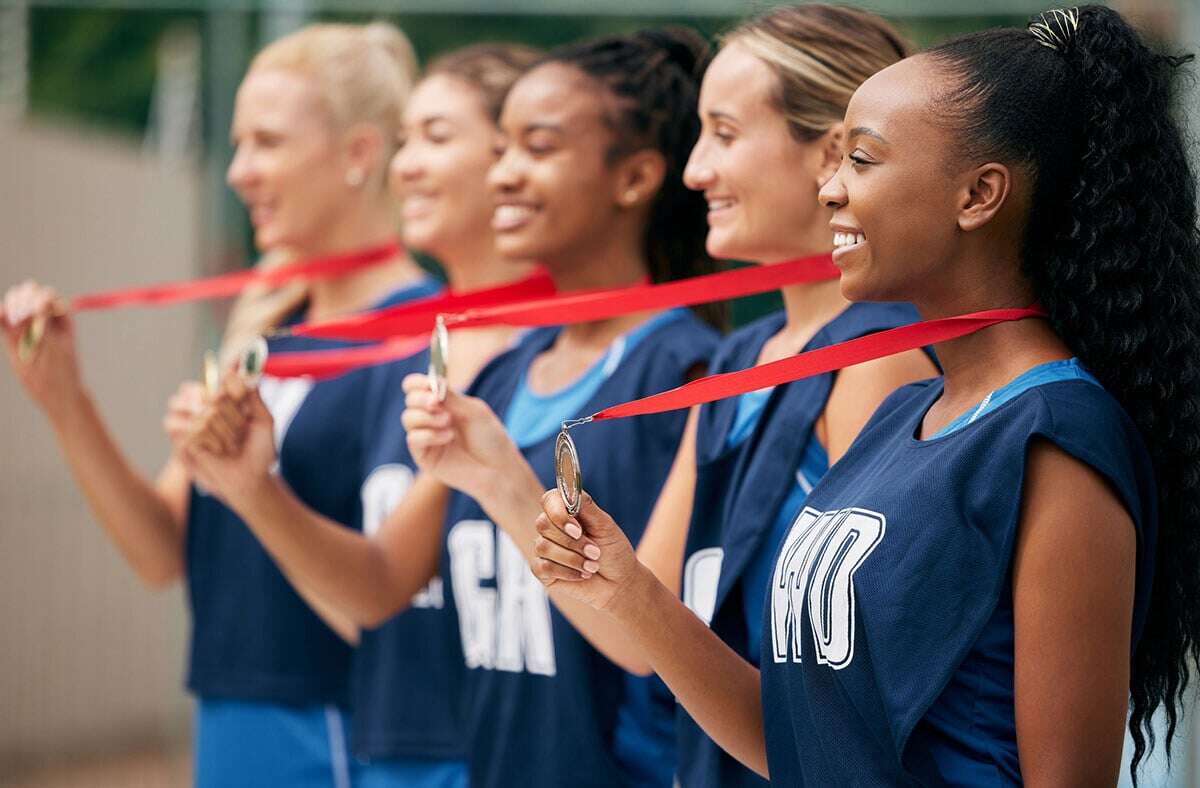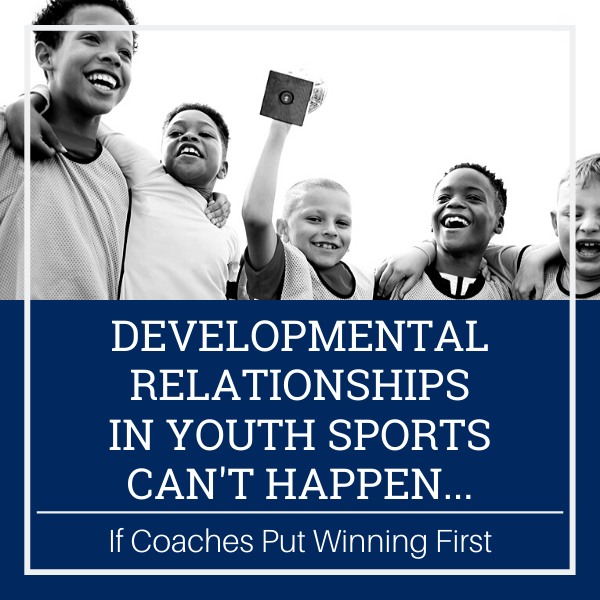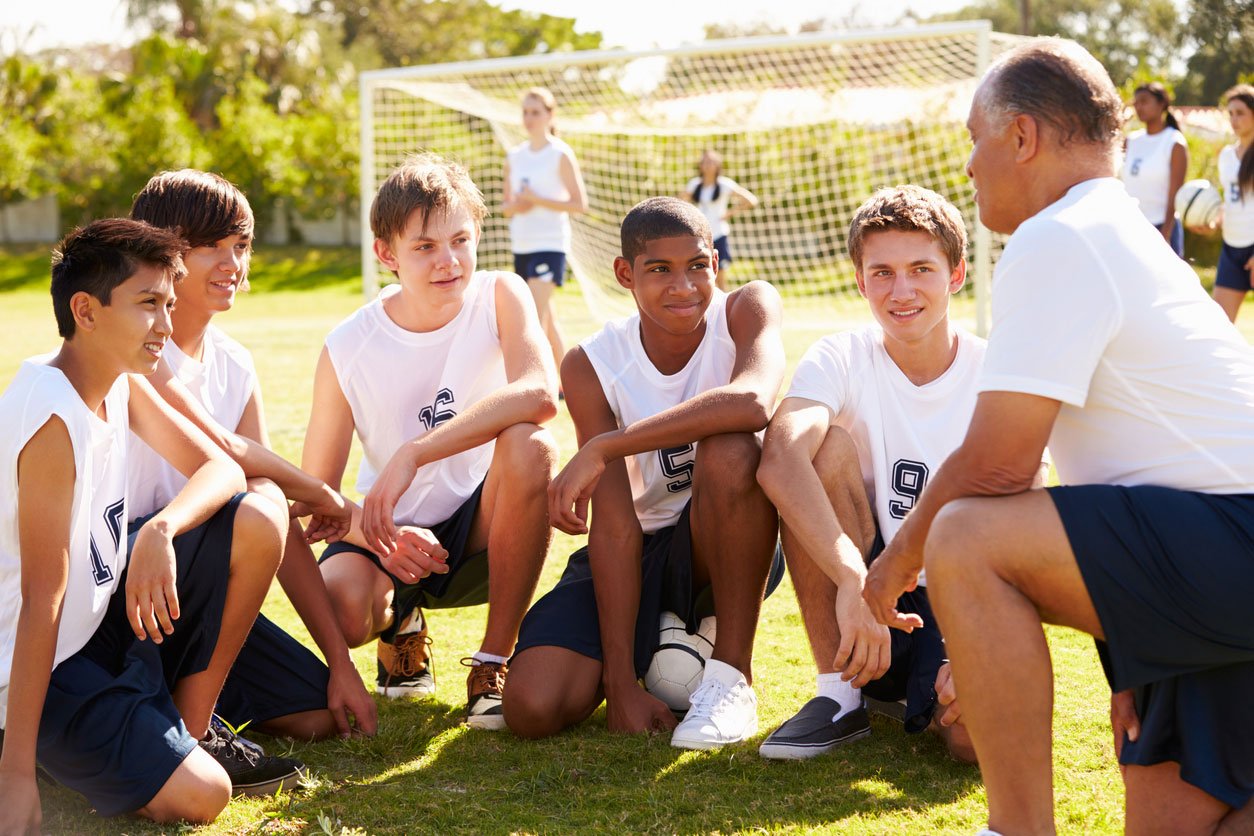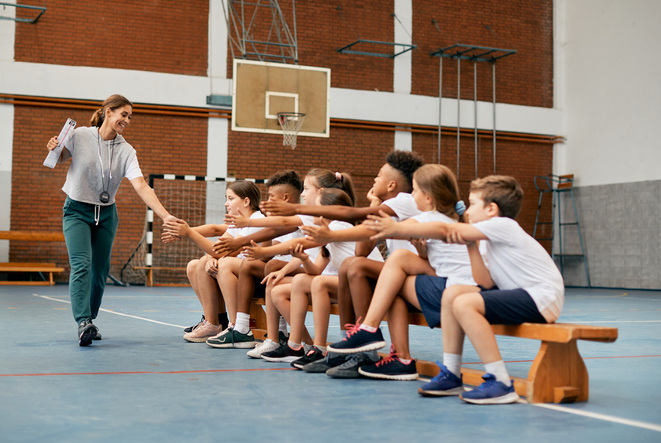Blog
The Real Champions: Promoting Positive Youth Development Through Sports
One of the indelible images from the 2024 Paris Olympics was that of Team USA gymnasts Simone Biles and Jordan Chiles bowing to Brazilian gold medalist Rebeca Adrade, symbolizing their respect and awe for their competitor’s champion performance.
The moment demonstrated the power of sportspersonship and the gymnasts prioritizing their love of the game and relationships with each other over winning the gold, even though they cared deeply about winning the gold.
Student athletics can be an ideal setting for fostering the critical developmental relationships that help young people succeed on and off the field by developing that kind of character.
How can coaches and other adults learn to best support the relationships that build a character-based team culture?
Transforming Team Culture
Not all young people stick with sports. In fact, data show that 1 in 3 young people quit organized sports each year, and 70% quit by age 13. They have negative experiences with coaches or with a competitive culture that puts winning above values and character development. That means they also miss out on the positive benefits that young people can reap when coaches and athletic programs focus on what’s really important.
What can coaches do to nurture a caring and supportive team, and sportspersonship?
A Search Institute study, published in the International Journal of Sport, Exercise and Health Research, found that one key is coaching that focuses on the love of the game and developmental relationships.
Character-based training programs can equip coaches with tools to help create these relationship-rich environments for fostering positive youth development, but our research indicates they sometimes don’t go far enough. The most effective way to promote positive youth development is to identify and apply practical interventions with a strong theoretical base.
In partnership with Progress Through Athletics (P/ATH), this pilot study, conducted with 262 student-athletes in middle and high school across the nation, tested a series of brief videos and user guides for coaches with the goal of nurturing the principles of positive youth development, the Developmental Relationships Framework®, and an evidence-based approach to coaching and player development that centers love of the game called Compete-Learn-Honor®.
The results of the study were encouraging. Student-athletes who had a strong DR and Compete-Learn-Honor team culture were more likely to want to stay in sports, bucking the trend of youth leaving sports early. And these resources helped support that positive team culture: The student-athletes whose teams used these resources the most said they had stronger relationships and a more character-centered team culture. They also reported better social-emotional competencies, felt greater sense of purpose from participating in their sport, and had more confidence in their coaches. Students whose teams used the video resources also reported having increased motivation to work hard and succeed academically.
As one coach also noted, “The videos and resource guides started important conversations that coaches and players need to have. Players enjoyed the videos and it led to enlightening conversations.”
“Teams that used them more had team climates characterized by more Developmental Relationships and more emphasis on the principles of Compete-Learn-Honor®, than teams that did not use the resources as much,” the authors write. “The student-athletes from those teams were more likely to report better social-emotional competencies, confidence in their coach, and garnering purpose from playing their sport.”
Focusing on Developmental Relationships
Search Institute’s Developmental Relationships Framework provides a guide for helping student-athletes discover who they are in the world and encouraging them to become their best selves.
Developmental relationships are the close connections that young people form with teachers, coaches, mentors, and peers. Unfortunately, one in five young people say they have no developmental relationships in their lives, and another 20% have only one. Coaches are one of the most important adults in young people’s lives and are in a perfect position to provide these critical developmental relationships.
Using the five key elements of the Developmental Relationships Framework, coaches can
- Express care by showing student-athletes they matter
- Challenge growth by pushing them to keep getting better
- Provide support by helping them complete tasks and achieve goals
- Share power with them by including student-athletes in decision-making, within safety limits
- Expand possibilities by connecting them with people and places to broaden their world
3 Simple Priorities
Here are tips for coaches who want to steer student-athletes away from a “winning at all costs” mentality and toward fun, positive experiences that sports science shows also increase their chances of competing well. There are 3 simple priorities that nurture sportspersonship.
- Keep them safe.
- Give them fun.
- Help them grow.
Prioritizing in this way keeps relationship building at the center of team culture.
As Search Institute Senior Fellow Peter C. Scales, Ph.D —aka Coach Pete—says, “In my coaching, I emphasize that winning is just a possible outcome of the more important thing, which is loving the game more than how you do at it, always learning, and playing honorably, and our process of focusing on teammates caring about each other, providing support to each other, challenging each other. All of that developmental relationship-building and focus on competitive character-building among me and the team, and among them as teammates, makes them better people and also increases their odds of winning because it makes them better problem-solvers in competition, which makes them stronger competitors.”
Tools to Build Relationships and Sportspersonship
Great coaches know that athletics is about helping young people develop habits that keep them mentally and physically safe and healthy, making sure they’re having fun, and helping them develop life skills that matter both on and off the playing field.
Search Institute and P/ATH tools tested in this study include three brief 3-minute videos showing famous athletes discussing topics related to character in sports such as learning from adversity and defeat, respecting opponents and fair play, team-building, empathy, not making excuses, commitment to excellence, and never giving up. The videos were paired with user guides for coaches with suggestions on how to use and talk about the videos.
The following resources are available for coaches seeking resources on this approach:
- The user guide, worksheets, and resources used in the Search Institute P/ATH study
- Tips for Youth Sports Coaches: Creating a Culture of Safety, Fun, and Growth
- Coach Pete Scales’ Compete-Learn-Honor® Approach to Mental Strengthening for Sports
- Search Institute’s Resources Hub, which has research-based tools, measures, and activities that support developmental relationships
Relationship Champions
Creating a team culture that supports positive youth development is a win-win proposition. With the right tools and intentionality, these approaches can become a natural part of the coaching process. The lessons we learn in athletic competitions are life lessons, with applications far beyond specific games or matches.





